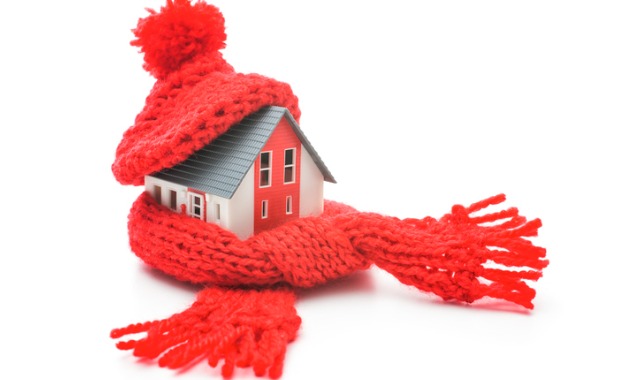By Brentnie Daggett, Rentec Direct
Massive winter storms swept across the U.S. this past holiday season leaving many people without power or heat and causing major discomfort and despair. With fallen trees, burst pipes and damaged roofs, you may be questioning what you could have done better to prepare? As a homeowner, it is your job to plan ahead. Here are five ways that you can prepare and protect your property from severe damage during the winter, and experts predict this year’s cold season is far from over in much of the country.
- Stay Up-to-Date on Winter Maintenance
While general winter maintenance can sometimes feel overwhelming, it doesn’t have to be if you plan ahead and have a checklist. Here are a few basic winter maintenance tasks that should be at the top of your list. Make sure to clean your gutters, wrap any uninsulated pipes to ensure they won’t freeze, and visually inspect the roof for any loose or missing shingles. It is also critical to prune trees and shrubs. As we saw over the holiday, ice and snow can weigh down limbs, take out phone lines, cars, roofs and homes, and cause dangerous obstacles. You should also check your water heater for any necessary repairs. Experts recommend flushing the water heater every two years to control mineral buildup. In addition, you should caulk openings in doors and windows to keep moisture out and check your attic’s insulation to prevent repairs.
- Make Plumbing a Top Priority
Did you know more than 250,000 families and homes experience frozen and/or burst pipes each year in the U.S.? While freezing temperatures can certainly cause a scare, there are measures that you can take to help prevent the common plumbing pitfalls. If you notice water trickling (versus flowing) out of your faucet, it may mean that one or more of your pipes is frozen. Warming up the pipes with a hair dryer, heating pad or towel soaked in hot water is something you can try if the pipe is in an accessible area. However, if it is external or wall piping, you should call a plumber right away to avoid further property damage. Even small leaks can lead to gallons of wasted water, so it is important to evaluate and bring in an expert immediately
- Monitor Winter Weather Advisories
With more winter storms on the horizon, it is essential to stay up-to-date on winter weather alerts so that you can stay informed and keep your tenants informed if you have any rental properties. Sign up for your community’s weather alert system and watch local and national news to review winter storm warnings, watches and advisories. Ready.gov also recommends checking the Emergency Alert System (EAS) and National Oceanic and Atmospheric Administration (NOAA) Weather Radio for emergency alerts. In addition, you may want to check out this information sheet from FEMA that provides tips on how to prepare, survive and respond to a winter storm.
- Have a Communication System in Place
As a homeowner, it is a good idea to have a neighborhood “phone tree” so you can check in on neighbors in case of winter weather emergencies or ask for help if you need it. If you own and manage investment properties, having transparent, consistent communication with your tenants is key to building trust, and that becomes even more important during a crisis. You can pursue avenues like a tenant newsletter with key updates and resources or even a text alert system for more instant alerts. No matter what, in a winter storm, tenants will turn to their landlords for advice, and it is best to have a strategy in place to share preventative tips and have a way to respond to tenant questions and inquiries.
- Encourage Tenants to Prepare for the Unexpected
A winter storm could leave you without electricity. It is a good idea to stock up on a few essentials in case of an emergency. This could include snacks, water bottles, medicine, flashlights, blankets, and extra batteries. The American Red Cross recommends having a Go-Kit with at least three days of supplies if you need to go somewhere else to stay warm and a Stay-At-Home Kit with at least two weeks of supplies. In addition, it is a good idea to keep your phone always charged. You may also want to have a few puzzles or books on hand for entertainment to help pass the time.
Remember that winter storms can last a few hours or several days. They can make it hard to heat your home, interrupt power, complicate communication, and put people and dwellings at risk. While not everything can be predicted, if you follow these tips, it should give you peace of mind for the next winter weather blast.
 Brentnie Daggett is a writer and infographic master for the rental and property management industry. She loves to share tips and tricks to assist landlords and renters alike. To learn more about Daggett, and to discover more great tips for renters, visit www.rentecdirect.com.
Brentnie Daggett is a writer and infographic master for the rental and property management industry. She loves to share tips and tricks to assist landlords and renters alike. To learn more about Daggett, and to discover more great tips for renters, visit www.rentecdirect.com.








